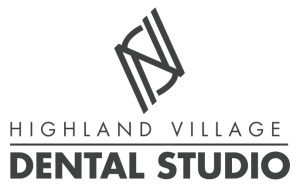What are the benefits of using a mouthwash?
- Mouth washes come in form of cosmetic and therapeutic.
- Depending on the formulation, therapeutic mouthwash is available over the counter and with prescription.
- Therapeutic mouthwashes can help reduce or control plaque, bad breath, tooth decay and gingivitis.
- Unless directed by a dentist, children younger than 6 should not use mouthwash because they can inadvertently swallow large amounts of liquid.
Mouthwash is not a replacement for daily brushing and flossing but it can be helpful addition to daily oral hygiene routine. It can easily reach areas not easily accessible by a toothbrush. To maximize benefit manufacturers may recommend using it before or after brushing depending on ingredients. Some ingredients like calcium hydroxide or aluminum hydroxide can form complex with fluoride ions and reduce the effectiveness of mouthwash. Vigorous rinsing with water may be indicated after brushing and before rinsing if these ingredients are present.
Why is mouthwash not recommended for children under 6 years of age?
In children, swallowing reflexes are not well developed and they may swallow large amounts of mouthwash. This can cause adverse events like nausea, vomiting and intoxication. Always check product label for specific recommendations. If your child accidently swallows large amount of mouthwash, call poison control immediately.
What types of mouthwashes are there?
Cosmetic mouthwashes can temporarily stop bad breath and leave a pleasant taste but have no chemical or biologic benefit beyond this. If a product does not kill bacteria causing bad breath, then the benefit is considered solely cosmetic. Therapeutic mouthwash on the other hand has ingredients that help control or reduce conditions like bad breath, plaque, and tooth decay.
These active ingredients include:
- Fluoride
- Chlorhexidine
- Essential oils
- Peroxide
- Cetylpyridinium chloride
Cetylpyridinium chloride is usually added to reduce bad breath. It along with essential oils can help control/reduce plaque and gingivitis. Fluoride helps prevent tooth decay. Peroxide can be found in several whitening mouthwashes. A therapeutic mouth wash can be purchased over the counter and by prescription based on the formula. Mouthwashes containing chlorhexidine are usually only available by prescription while those with essential oils can be bought in store.
Dental Clinical conditions where a mouth wash may be recommended:
- Dry Socket (Alevolar Osteitis)
- Oral Malodor (Bad Breath)
- Plaque and Gingivitis
- Tooth Decay
- Topical pain relief
- Whitening
- Xerostomia (dry mouth)
- Oral Cancer Concern
Your dentist at dental clinic in Roseville will help decide and recommend mouthwash when necessary depending on your need.
Patient information regarding mouthwash
If the mouth wash was prescribed to you, use as directed. If a dose is missed, use the rinse as soon as possible. Doubling the dose does not have additional therapeutic benefit.
Looks for ADA Seal of Acceptance when buying over-the-counter mouthwash. The seal shows that the product is safe and effective for claimed purpose.
For more information, visit ADA.ORG.
If you need a dentist in placer county, you are in the right place. Click below to visit our website and book your dental appointment online or call our office at 916-831-7100.
Highland Village Dental Studio
262 Gibson Dr. Suite 100
Roseville, CA 95678
